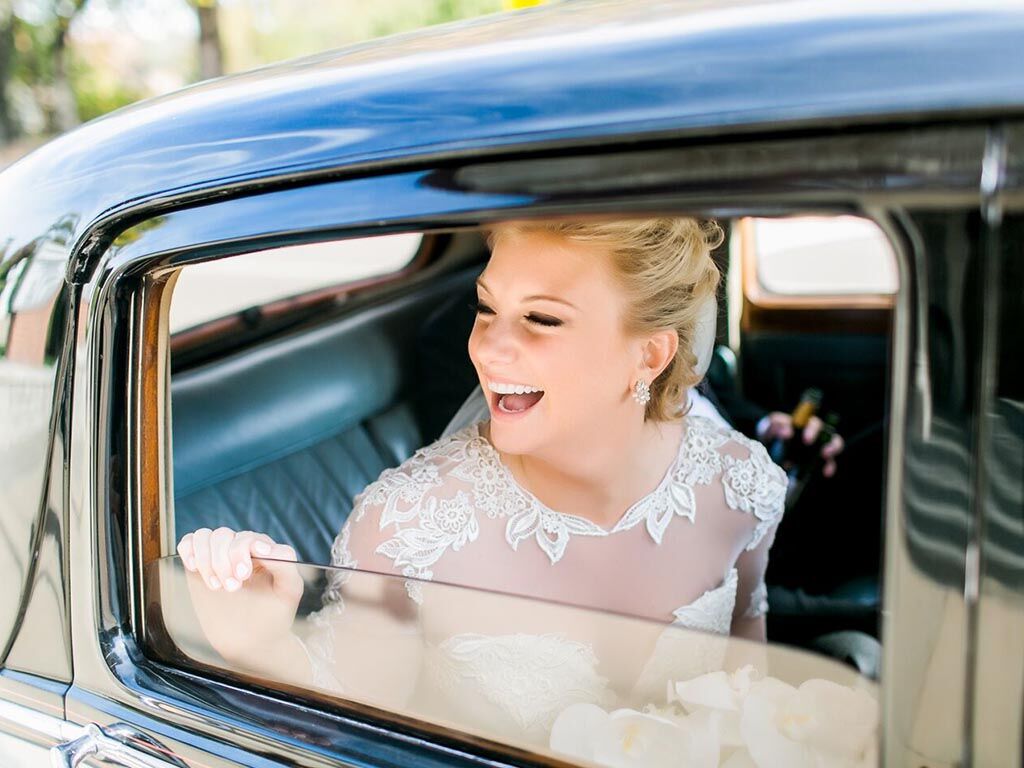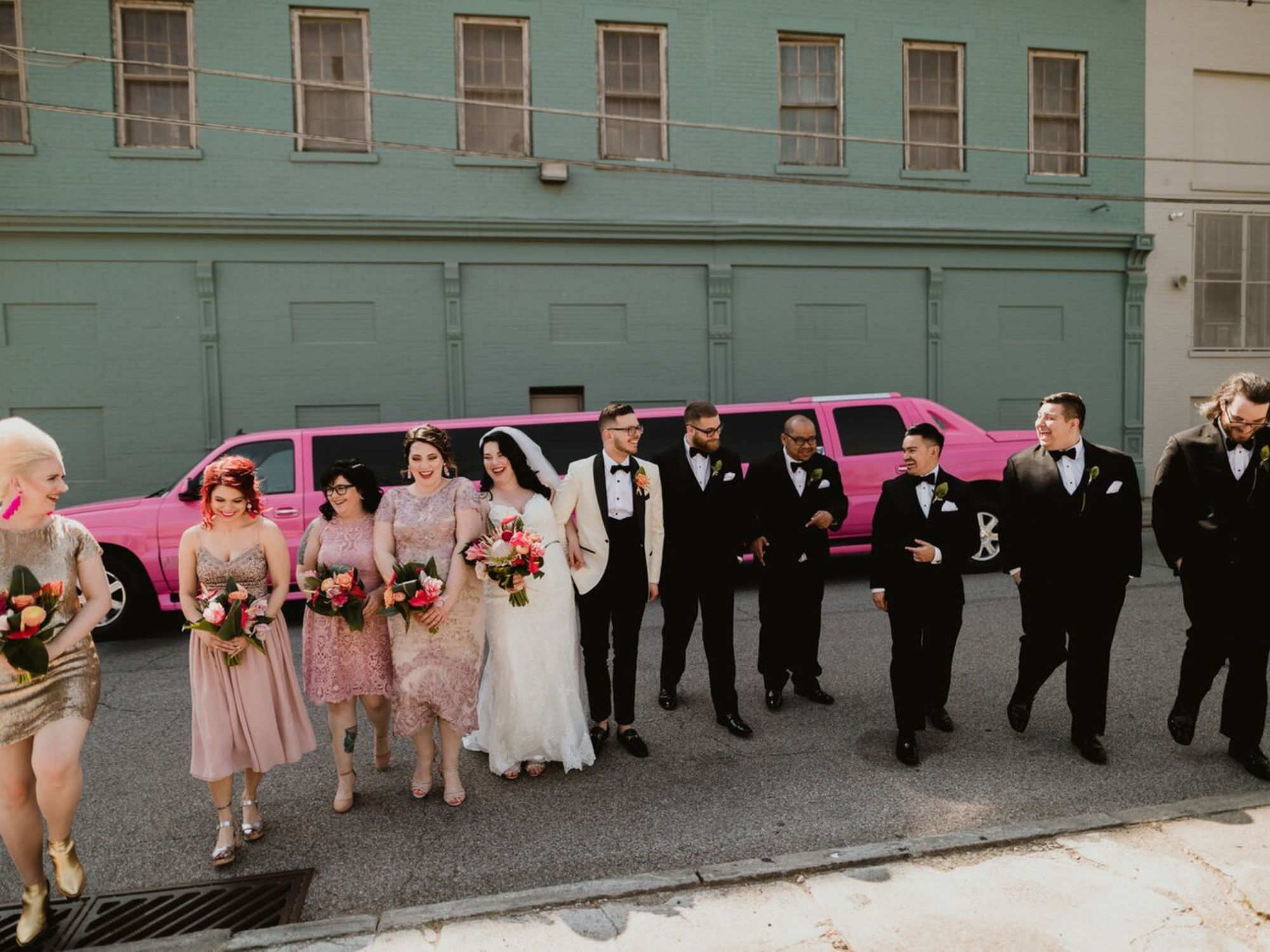Your Complete, Lawyer-Backed Guide to Wedding Vendor Contracts

As much as your wedding is a momentous, celebratory and fun-filled affair between two people who are deeply in love and about to join each other in holy matrimony, it's also a business endeavor for every single wedding vendor that you hire to partake in your big day. As a large-scale event that incorporates the involvement of a myriad of different businesses, a wedding contract for each and every vendor that you hire is vital to protect both you and the vendor should certain circumstances arise.
In this article:
- What Is a Wedding Contract?
- Wedding Vendor Contract Benefits
- Wedding Contract Terms and Conditions, Defined
What Is a Wedding Contract?
Put simply, a wedding contract clearly outlines all of the expectations and services provided by the wedding vendor to provide a legal framework by which both parties' interests are protected in full. "This contract is crucial for both parties because it outlines the services provided, payment terms, event details and everyone's responsibilities," says Gregory Stone, Managing Partner with Fisher Stone, P.C. in New York City. "Having these terms outlined creates a shared understanding of exactly what is expected from the couple (payment, direction, or materials) and what is expected of the vendor (quality service, communication and reliability)."
Another key incentive to have a wedding contract in place with each and every vendor is to protect both you and the vendor in an event where something goes wrong—if there was an unforeseeable circumstance where the wedding had to be called off, for example. "Proper contracts should include the terms for cancellation, alterations to the service, how to handle disputes and who is liable for any damages or injury," Stone adds.
While you might think that a wedding contract is only necessary if you're having a large-scale wedding, the reality is that a contract serves an important place even with a micro wedding. Getting promises in writing is crucial—specifying quantities, costs and making sure all of the dates and deadlines are being followed is important for your wedding no matter the size, notes Marc Snyderman, Attorney-at-Law with OGC Solutions. "The wedding vendor contracts should be signed by the person who is going to be responsible for paying for the event," he says. "Typically the wedding couple would sign on to be responsible for the event but sometimes it can be a parent or someone else signing."
Wedding Vendor Contract Benefits
Here are some key reasons why wedding contracts are so important for both the couple getting married and each of their vendors.
It provides a clear understanding of services, quality and deliverables.
"A wedding vendor contract meticulously outlines the specific services to be provided and the quality at which they should be provided, which is essential in ensuring that both parties have the same understanding of what will be delivered," explains Stone. "It provides a reference point for the couple to hold vendors accountable for the agreed-upon services, contributing to the overall satisfaction with the wedding arrangements."
It protects against sudden cancellations.
The last thing you need before your big event is one of your vendors backing out—be it your florist or your wedding band. Contracts typically include terms for cancellations, no-shows and non-performance, explains Stone, and this is crucial in the wedding industry, where timing and reliability are paramount. "If a vendor fails to show up or cancels at the last minute, the contract stipulates the penalties or refunds the couple is entitled to," he says. "Similarly, it protects the vendor if the couple cancels, ensuring they receive compensation for their time and resources allocated."
It details payments and due dates.
A wedding contract provides a clear and structured financial plan, as it often lays out a full payment schedule, detailing amounts, due dates and payment methods, explains Stone. "This structured approach to finances helps couples budget effectively and avoid unexpected costs," he says. "For vendors, it ensures they have security in when they are getting paid and how much."
It includes personalized and tailored details pertaining to your big day.
Wedding vendor contracts allow for the personalization of services to suit the specific needs and preferences of the couple. "This is particularly important for weddings, where individual tastes and themes are key," says Stone. "For example, a contract with a decorator or florist can specify themes, colors and styles, ensuring that the aesthetic vision of the couple is precisely understood and adhered to."



Wedding Contract Terms and Conditions, Defined
While wedding contracts can vary in terms of their conditions and outlined details, you might be wondering, what should be included in a wedding vendor contract? Here are some of the common terminology you'll likely find in wedding contracts with your vendors.
Personal Details
With any contract, it's crucial that your full names, as well as the full names of the businesses you work with, are included in the contract along with addresses of both parties. Additionally, the date, time and location of the wedding event should be in the contract.
Scope of Services
The scope of services outlines exactly what the vendor will provide. "For instance, a photographer's service description would detail the number of hours of coverage, type of photography, number of photographers and delivery format for the images," says Stone. "It ensures both parties have a clear understanding of what is expected in terms of the service delivery."
Payment Terms
As the name suggests, the payment terms will break down the total costs, deposit amounts, payment schedule and any additional fees that may add up, such as late payments. "This term should also specify the terms under which either party can cancel the contract and the financial implications of such cancellation," says Stone. "It usually includes details about non-refundable deposits, timelines for allowable cancellations, and any partial refunds applicable."
Cancellation Policy
Sometimes there's a separate cancellation policy that outlines the terms and conditions relating to the need to cancel or reschedule the event, including any applicable fees or refunds.
Force Majeure Clause
Separate to the cancellation policy is often the force majeure clause, which addresses large-scale unforeseen events or circumstances (e.g., natural disasters, emergencies) that may impact the ability to fulfill the contract.
Liability and Responsibilities
This section limits the amount and type of liability each party assumes in the contract, Stone explains, such as clauses that protect the vendor from damages caused by accidents or unforeseen events at the wedding. "This could include allergen concerns for caterers, hair and nail stylists, and even florists."
Timeline and Schedule
Sometimes this information is woven into other areas of the contract and sometimes it stands alone. Either way, this information is crucial to a wedding contract, as it gives a delivery time and method of delivery. "In addition to providing the client and yourself a deadline to expect the finished product/service, this section also lays out exactly how you are delivering the product," says Stone. "For example, will the photographer be giving the couple a USB drive or a digital gallery? For wedding caterers, what time are they expected to arrive, when will meals be served, and when can the staff expect breaks, if any?"
Vendor Meals and Accommodations
If applicable, this section will detail which vendors get meals and accommodations during the event. It's especially important to have this section if you are hiring vendors from out of town—or out of state—who require accommodations aside from meals.
Weather Contingency Plans
This section is especially vital for outdoor weddings, as it will indicate a back-up plan for where an outdoor wedding should be held in case of inclement weather, including any additional costs for tenting or alternative arrangements.
Dispute Resolution
This clause outlines the process for resolving any disagreements that arise from the contract, explains Stone. "It might include steps for mediation or arbitration before resorting to legal action," he says. "Having a clear path towards resolving issues outside of a courtroom is the best option for all parties."
Media Releases and Intellectual Property
If vendors are creating audio, visual or design content for the wedding, it's important to establish who owns that property going forward, and how it can be used, notes Stone. "This clause allows couples and vendors to be on the same page about new media and how it is allowed to be used," he says. "If a couple were to keep the produced media, the vendor may ask permission to use it for marketing purposes; if the vendor were to keep the media, the couple may ask permission to include it on social media posts and videos."




















